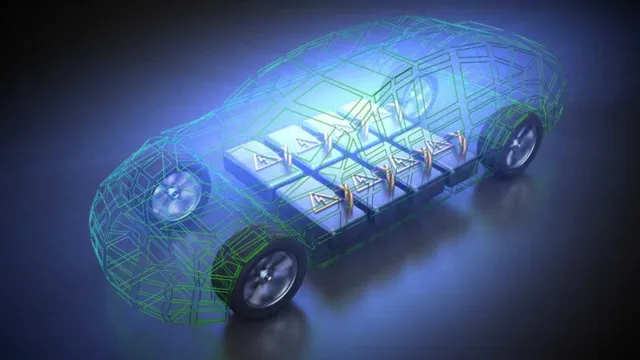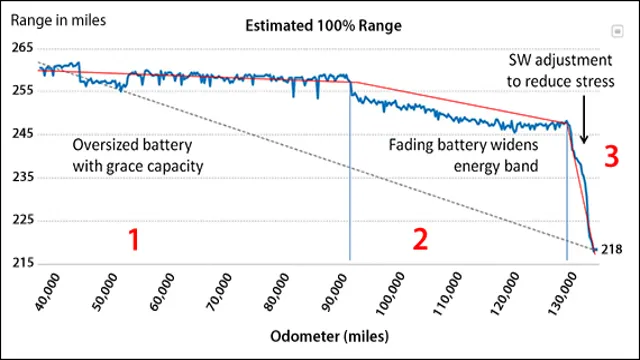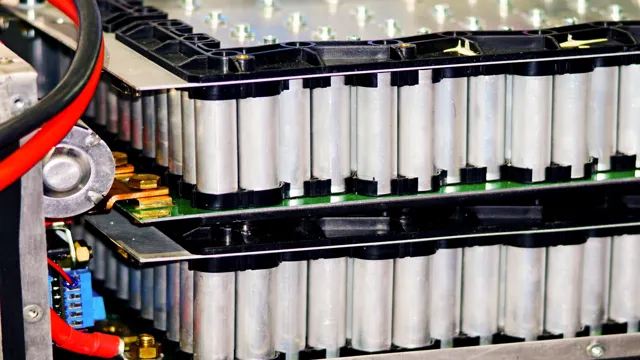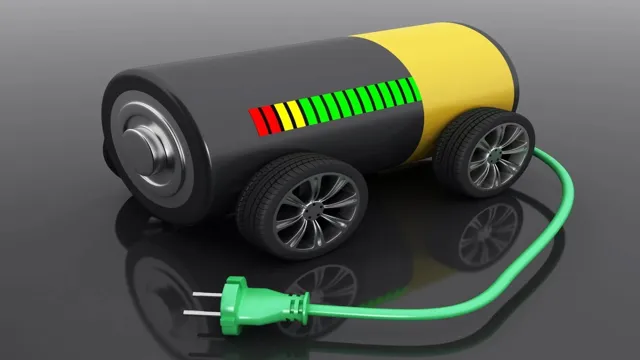Unleashing the Shocking Truth: What You Need to Know About the Cost of Electric Car Batteries
Electric cars have been a hot topic in recent years and for a good reason. They are eco-friendly, cost-effective, and offer a plethora of benefits. However, the one thing that often holds people back from purchasing an electric car is the cost of the battery.
But exactly how much does an electric car battery cost? Well, the answer is not as straightforward as one might think. There are several factors that come into play when determining the cost of an electric car battery, and in this blog post, we’ll delve deeper into this topic to help you understand better.
Factors Affecting Electric Car Battery Cost
The cost for electric car battery is one of the biggest factors that influence the popularity of electric vehicles. There are several factors that affect the cost of electric car batteries. One of the most significant factors is the raw materials used to manufacture the batteries.
Lithium-ion batteries, which are commonly used in electric cars today, are made up of several raw materials, including lithium, cobalt, and nickel. Fluctuations in the price of these materials can have a significant impact on the overall cost of the batteries. Another factor that affects the cost of electric car batteries is the scale of production.
As more electric vehicles are produced and the demand for batteries increases, the cost of producing the batteries is likely to go down. Additionally, advancements in battery technology and improved manufacturing processes can also drive down the cost of electric car batteries. Ultimately, the cost for electric car batteries is a critical factor in encouraging more drivers to switch to electric cars, and understanding the factors that impact the cost can help manufacturers and consumers make informed decisions.
Battery Capacity
Battery capacity is one of the essential factors to consider when discussing electric car battery cost. The bigger the battery’s capacity, the higher the cost it incurs. The cost of electric car batteries has decreased significantly in the past few years, and it is expected to decrease even further with the continuous development of battery technology.
However, the number of electric car models on the market is still limited, making it difficult to create economies of scale in production. On the other hand, battery cells’ size and weight may also affect the cost because the larger and more massive the battery, the more expensive it becomes. Another significant factor impacting battery cost is chemical composition, which accounts for different battery chemistries.
The standard cell for many early electric vehicles was the lithium-ion battery, but new chemistries have been introduced, such as solid-state lithium-ion, lithium-polymer, and lithium-sulfur. These batteries can offer higher energy densities than lithium-ion batteries, but they are still in the development stage and not widely manufactured. In conclusion, consumers who are willing to invest in an electric vehicle are also investing in the battery.
The battery’s size, weight, and composition can significantly impact the electric car’s overall cost. That’s why it is crucial to choose an electric car with the right battery capacity that fits the driver’s needs and budget. As more automakers enter the electric vehicle market, the battery prices are expected to decrease further, making electric cars more accessible and affordable to the general public.
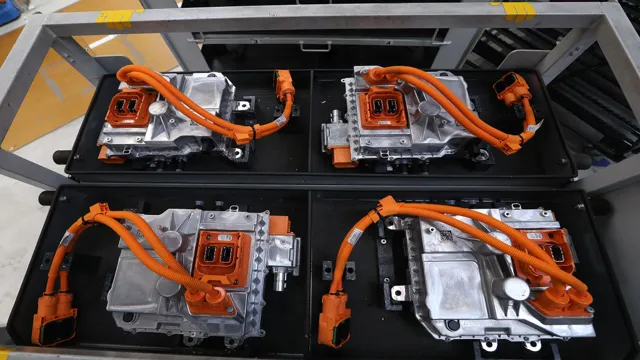
Brand and Model
When it comes to the cost of an electric car battery, several factors can contribute to its price. One of the most significant is the brand and model of the vehicle. Some brands are known for their quality and high-end features, which can often result in a higher cost for their batteries.
Meanwhile, more affordable brands may use less expensive components to provide a lower price point for their vehicles, resulting in a lower battery cost. Another factor that can impact the price of an electric car battery is its capacity. Batteries with larger capacities can store more energy and provide a longer driving range, but they also tend to be more expensive.
Additionally, the age of the battery can influence its cost, as older batteries may need to be replaced more frequently and could require more maintenance over time. Overall, there are many considerations to keep in mind when looking at the cost of an electric car battery. By understanding the various factors that can impact pricing, you can make an informed decision when selecting a vehicle and battery that meets your needs and budget.
Technology Used
Electric car batteries cost can vary depending on a variety of factors. One critical factor is the technology used to make the batteries. As technology advances, manufacturers have been able to develop batteries that are more efficient, lighter, and have a longer lifespan.
Lithium-ion batteries are currently the most commonly used in electric cars, but solid-state batteries are being developed and could be the future. The cost of batteries is also affected by the materials used to make them, such as the metals in the electrodes and the electrolyte. Recycling programs can also affect the cost of electric car batteries.
As production increases, recycling programs will become increasingly critical in reducing the cost of electric car batteries. Additionally, innovative charging methods, such as wireless charging, can impact the cost of owning an electric car by reducing the need for expensive infrastructure to support the charging process. Overall, as technology advances and production increases, the cost of electric car batteries will continue to decrease, making them more accessible to the average consumer.
Average Cost of Electric Car Battery
When it comes to electric car batteries, the cost can vary depending on a number of factors. Generally speaking, the average cost for an electric car battery ranges from $5,000 to $7,000. However, this cost can be significantly higher for luxury electric cars with larger battery capacities.
For example, the battery cost for a Tesla Model S can range from $7,000 to $12,000. It’s important to keep in mind that while the upfront cost for an electric car battery may be higher than a traditional gasoline vehicle, the overall savings in fuel costs and maintenance make it a worthwhile investment in the long run. Additionally, as technology continues to advance, the cost for electric car batteries is likely to decrease, making them even more accessible to consumers.
So, if you’re considering purchasing an electric car, don’t let the cost of the battery deter you. It’s an investment that can pay off both financially and environmentally in the years to come.
Electric Car Battery Cost Comparison Table
When it comes to electric cars, the battery is one of the most expensive components. The cost of an electric car battery varies depending on several factors such as the battery size, the type of battery, and the manufacturer. The average cost of an electric car battery is around $5,500 per kilowatt-hour (kWh).
For example, a 60 kWh battery can cost around $33,000. However, the cost of electric car batteries has been decreasing over the years due to advancements in technology and increased production. In 2010, the cost of electric car batteries was around $1,000 per kWh, which is almost six times higher than the current cost.
The cost of electric car batteries is an important factor to consider when purchasing an electric car, as it can significantly affect the overall cost and affordability of the vehicle. Moreover, the cost of electric car batteries is expected to continue to decrease over the next few years as the technology improves and production increases.
Ways to Save Money on Electric Car Battery
The cost for electric car battery can be a significant investment for those looking to transition to more sustainable transportation options. However, there are ways to save money when purchasing and maintaining electric car batteries. One option is to choose a vehicle with a smaller battery capacity, such as a city-driving electric car, which will have a lower upfront cost.
Another way to reduce costs is to lease the battery rather than buying it outright, which can help spread out the overall expense. Regular maintenance, such as ensuring tires are properly inflated and minimizing the use of air conditioning, can also help prolong the battery’s lifespan and avoid costly replacements. Finally, it’s important to research different models and compare prices from various dealerships to find the best deals and avoid overpaying.
With these tips, owning an electric car can be a financially feasible option for those looking to make a positive impact on the environment.
Battery Leasing Options
If you’re thinking about purchasing an electric vehicle, you might be wondering about the cost of the battery. However, there are now several options for battery leasing that can help save you money. Electric car manufacturers, such as Nissan, offer battery leasing where the battery is owned and maintained by the manufacturer, and you pay a monthly fee to use it.
This can be a great option if you don’t want to worry about the cost of replacing the battery if it fails. Another option is to purchase a new electric vehicle with a smaller battery and then upgrade later if needed. This not only saves money but also helps reduce waste by not prematurely replacing a battery.
Whichever option you choose, it’s important to remember that the battery is the heart of an electric car and taking care of it will increase its lifespan and save you money in the long run. So, consider options for battery leasing when purchasing an electric vehicle to save money and ensure a long-lasting battery life.
Federal and State Tax Credits
If you’re considering purchasing an electric car, it’s important to take advantage of the available federal and state tax credits to save money on the battery. The federal government offers a tax credit of up to $7,500 for qualifying electric vehicles, while some states offer additional incentives such as rebates, tax credits, or exemptions on sales tax. By researching the different incentives available in your state and taking advantage of all applicable credits, you can significantly reduce the cost of your electric car battery.
Think of it like a sale on a product you already want – by using coupons or taking advantage of a discount, you can get more value for your money. So why not save even more by taking advantage of these credits and get yourself on the road to a more sustainable future?
Conclusion
In conclusion, the cost for electric car batteries may seem shocking, but it’s important to remember that with advancements in technology and increasing demand, prices are bound to continue decreasing. Additionally, the long-term savings on fuel and maintenance costs make electric cars a wise investment. So, don’t let sticker shock deter you from making the switch to electric – it’s a charge worth taking.
“
FAQs
What is the average cost of an electric car battery?
The average cost of an electric car battery is around $5,500 to $7,000.
How long does an electric car battery last?
The lifespan of an electric car battery varies depending on the usage and model. However, most electric car batteries last between 8 to 10 years.
Can an electric car battery be replaced?
Yes, an electric car battery can be replaced. However, the cost of replacing electric car batteries is still relatively expensive.
What factors affect the cost of an electric car battery?
The cost of an electric car battery can be affected by several factors, including the battery’s capacity, the type of chemistry used, and the manufacturer.

